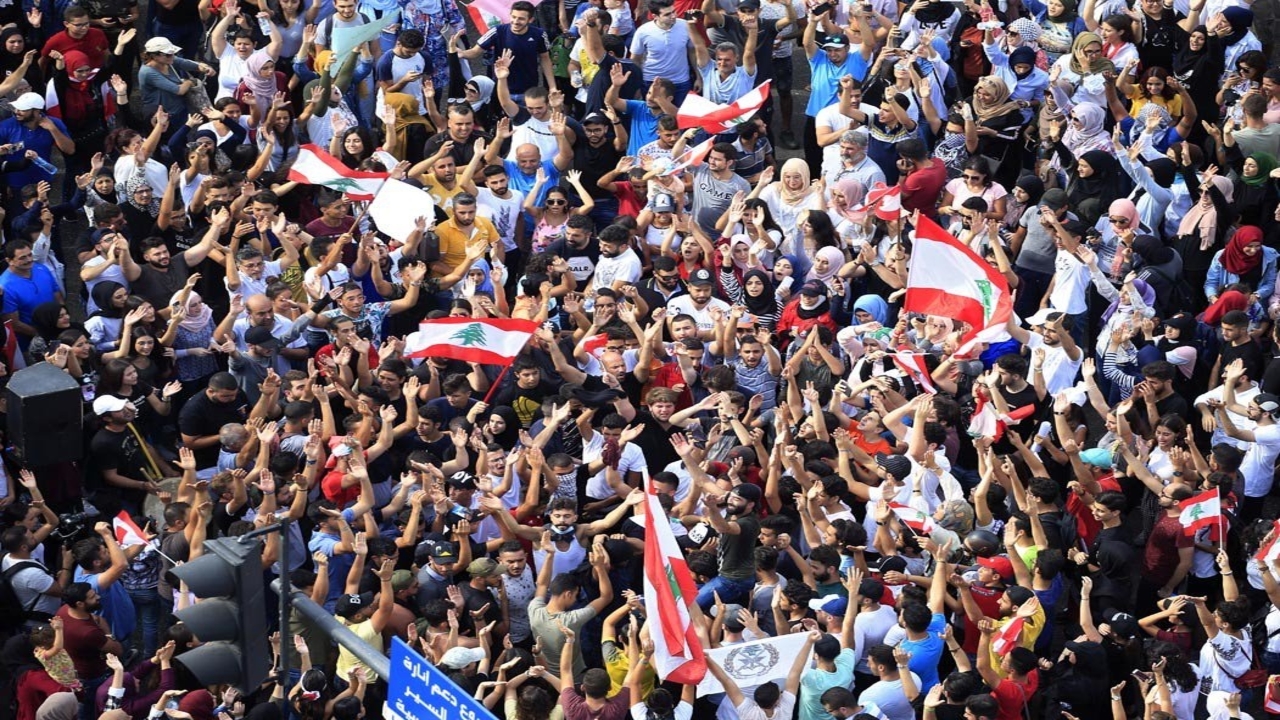Thousands continue to take to the streets as protests in Lebanon entered their second week. A general strike called for by trade unions in the country entered its fourth day on October 24. All the major financial, commercial and educational institutions have been shut and thousands of workers, students and teachers are taking an active part in the demonstrations across the country.
The protests began on October 17 following the announcement of a new set of taxes, including a monthly USD 6 tax on calls through popular social media applications. It has since spiraled into a full-fledged popular revolt against the Lebanese government and country’s entire ruling class.
There is a popular perception of widespread corruption among the post-Civil war ruling elite in the country. Under the current neo-liberal economic regime, people have experienced a deterioration in their standards of living over the past few years due to a lack of adequate employment opportunities and stagnation in wages.
Lebanon has an unusually high public debt and depends heavily on remittances and foreign aid. The government, citing pressure from international donor agencies such as the IMF and World Bank, has been trying to reduce public expenditure.
However, its so-called austerity measures have angered the people at a time when most of them are struggling to meet their basic needs. The youth unemployment in the country is around 18% and real wages have not been going up. To make matters worse, a third of the country faced massive forest fires a few weeks ago, which the government failed to handle effectively.
Following the protests, the government withdrew the proposed taxes. However, the people remain dissatisfied and are looking at long-term solutions to their economic grievances.
The current protests are one of the longest and largest in the recent history of Lebanon. According to some estimates, millions of people have been participating in these popular demonstrations. Lebanon has a total population of around 6.8 million. The present demonstrations are unique because people have come together, eschewing their ethnic and religious differences.
On October 21, prime minister Saad Hariri attempted to pacify the protesters by announcing a set of reforms and policy initiatives in the new budget. These include a commitment to not impose new taxes on people and provide USD 160 million in housing loan to the homeless. He also proposed to halve the salaries of all the major government officials, including those in the legislature.
Hariri also made announcement for providing financial aid to people living below the poverty line. Around 25% of Lebanon’s population lives below the official poverty line which is USD 4/day.
The protesters, however, have refused to accept anything less than the resignation of the government and the establishment of a technocratic transitional administration, leading to fresh elections.
Some protesters have also called for the army to intervene, a dangerous demand, considering the record of military interventions in the region. The Lebanese army has also so far stood behind the government and has asked the protesters to desist from ‘obstructing normalcy’ in the country. The military has echoed Hariri’s call to the protesters to gather peacefully. Hariri has tried to justify the deployment of the army as a precaution against attacks by the armed militias affiliated to some political groups in the country.
There are already reports of clashes between the army and the people in some parts of the country. On October 23, the army used force to disrupt the protesters at Jal-el-Dib, near the capital Beirut, when they tried to open a bridge closed by the military.
Meanwhile, the general secretary of the Lebanese Communist Party addressed a press conference on October 24, and praised the people for showing resilience. He reiterated the demands of resignation of the government and holding of fresh elections in the country based on article 22, which talks about the election of the legislative council in a non-confessional way.





